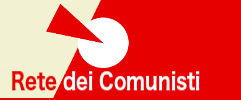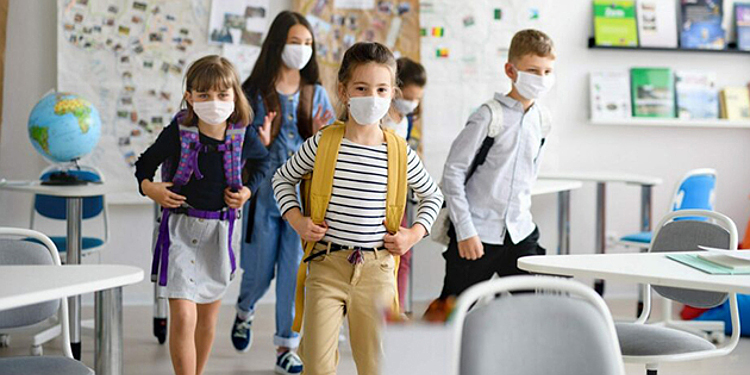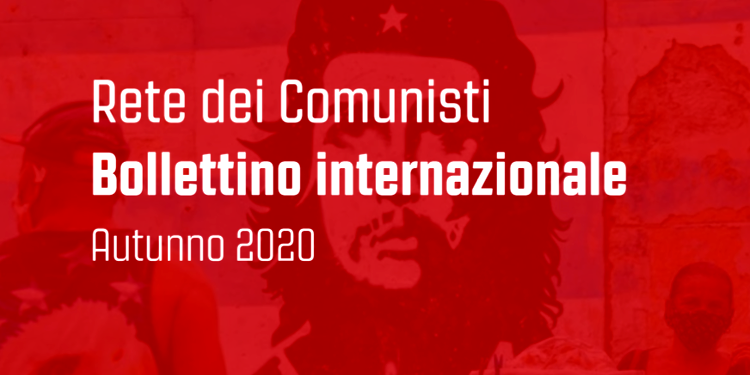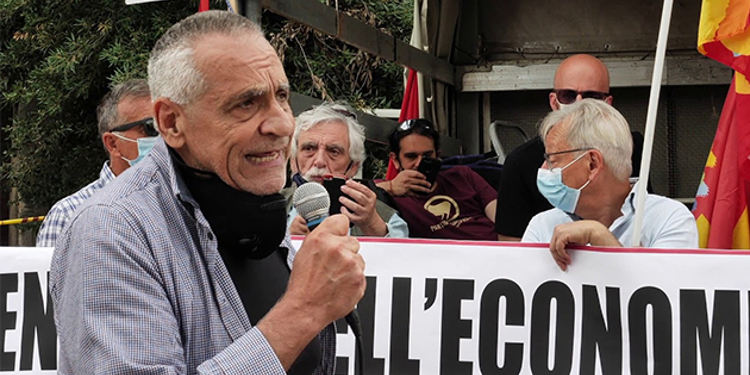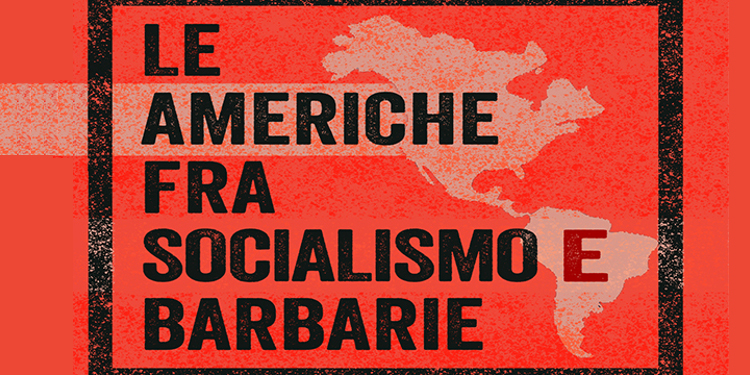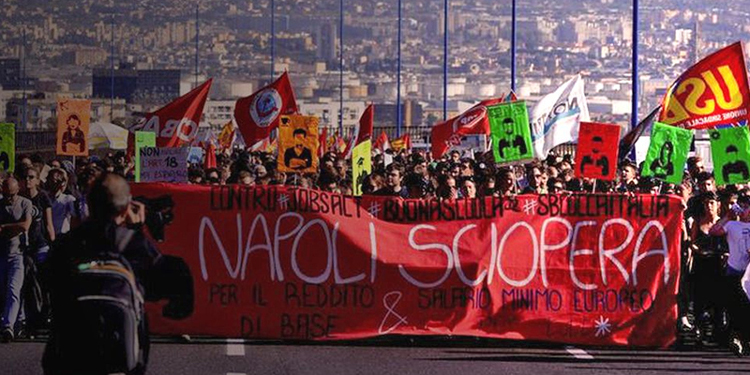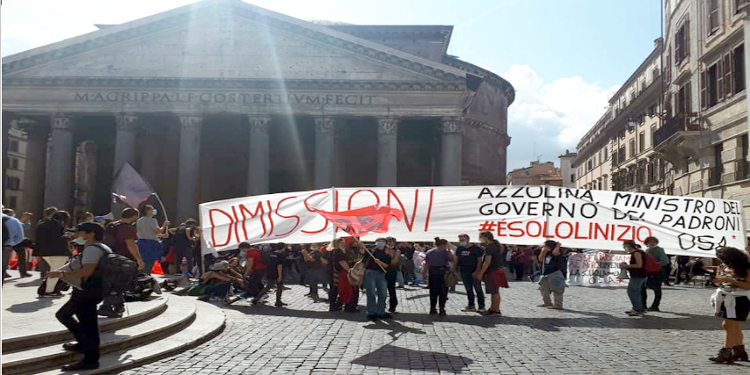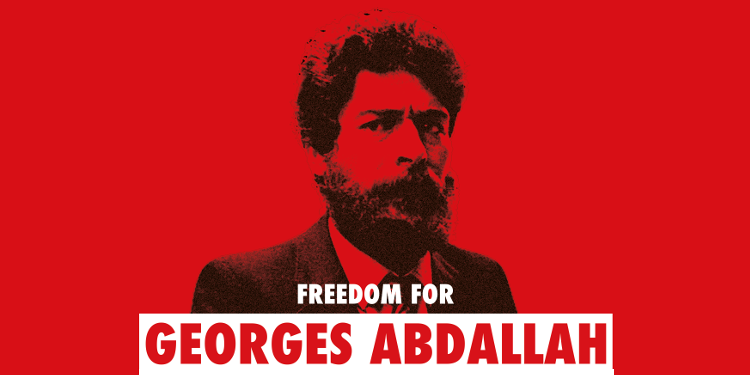| english | español | français | italiano |
Rete dei Comunisti
The two-day school strike has been organized in a context of two important elections: the administrative elections in some important region of Italy that return a government reinforcement and the constitutional referendum, that turns into the restriction of the constitutional spaces of democratic political representation. Surely the relatively low striking numbers have been induced by the fact that a lot of school workers (overall teachers, that represent an important part of the typically impoverished middle class), are still endorsing the Partito Democratico (PD) or at the Movimento 5 stelle (M5S), the two governing parties. From one hand, infact, the PD is still able to have a theoretical-cultural arsenal about school, despite it is the avant-garde of the devastating modernization of school, that from Berlinguer school reform to the “buona scuola” one, is responsible of the “death of the school system”.
On the other hand the M5S’“caste” rhetoric has been able to deeply penetrate the ideology of lots of different social subjects, included school workers.
However, both parties will deal very soon with Recovery Fund (RF) and ESM’s issues. These financial tools are made to strength European political and economic integration in a situation of global health crisis. RF and ESM will give the possibility to break the spending restraints, and access to an economic stimulus plan unseen in the last decades. Despite these investments will benefit the capital accumulation and will not be used for social rights, at the end of the day the working class will have to pay the cost of it.
How this issue deal with school? We will try to explain it in a few points representing the core of our analysis, and of our political and theorical proposals for a long time.
1) The Italian school model nowadays is the results of 30-year trial to force the Italian education system adapt to the European integration process. It stems from the production of surplus-value crisis, the break of the link between schooling and collective social progress, the implementation of a for-profit model in enormous part of public sector (such as school and health), the stated goal of aligning the education sector to the industrial chain. It originates also from the pervasive digitalization, the competences-based teaching that is the methodological translation of the need to create and grow “trained gorillas” that are necessary in this phase of the capitalistic way of production.
We must rethink this model and go beyond it, in a perspective of total transformation of society. School alone does not produce any change without a global social transformation. Nevertheless there is no overcoming without considering school as the ideological apparatus in which we build the cultural egemony, where we can grow the hegemonic fight and use knowledge to free and emancipate the subalterns.
2)Emergency management and school year planning revel the absence of a centralized guide of the school sector and the fail of school autonomy, that has shaped schools on distort model of competitiveness, a market’s feature. It is not only a matter of blaming Ms. Azzolina, Minister for education, but it is a matter of verify (school by school, if possible, today and in the next months), how an extraordinary heath situation is underlying all the limits of this system and of its social organization. In this organization stands schools, too. Privatization and a private-public governance for the integrate school-business system are not able to plan and take care of collective interests. The structural investments on school buildings and workforce, a doctor in every school and other revindications that trade unions and students call for with the September 24th – 25th strike can be possible only in a State model that is not the Profit State. This is what we are talking for long time (today in a new form that doesn’t change the meaning, though)
The reflection on the educational model must be included in a reflection on the social and state model and it has to do with the economic, social, cultural and education policies planning.
3) The subect. The covid-19 crisis has questioned not only this economic and social model but it has started to scratch also its two ideological pillars: competition and individualism. Those have obviously a correlation and have been introjected by and forced into young generations.
The absence of perspectives, the forced distance from normal life’s school areas (classes, gyms, hallways etc) continues to produce a larger visual angle about school and society. Among masks, staggered accesses, social distances, restrictions and forced discipline students begin to think about the sense and the adequacy of that place, its function, the perspective that must open. In this condition perspective are for the few, future is unknown, and fear is a constant. This model was not working before, but now even the narrative of it does not work anymore. This condition links instant revendications with some more complex objectives: the fight for spaces and for a different learning, the struggle against internship during high schools (the so called “alternanza scuola lavoro”, meaning schooling and working during school times), and so on… all these issues leads to the problem of work. It helps to transcend from the particular condition to get to social transformation goals.
For these reasons it is important to give voice to the struggles: the reorganization of the student movement, the political perspective of its link with the workers movement, the opening of a new season of struggles by precarious/flexible and poor workers. This is a result, not a ritual, that needs to be built and constructed for the organization of a new phase , where every school sector will be able to improve an important political progress.
There will be time to focus and share this kind of reasoning directly with teachers, school workers, students, parents and families.
The the two-day strike organized by Osa, Usb, Unicobas, Cub, Cobas Sardegna and other youth political organizations is an important moment of struggle to build a leading role and an initial test for all the persons that wants to “create a different world”.
